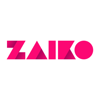Updated January 22, 2026
Startups in Japan: here's what you need to know
Japan is on its way to becoming “the place to be” for startups.
Despite the effects of the pandemic still reverberating through the world economy, the startup scene in Japan has continued to thrive. With over 10,000 startups and counting, the country has proven to be a global hub for entrepreneurs in 2025. The question is, why?
One factor is Japan’s unique culture and history of innovation, which attracts entrepreneurs who want to try living in the country. But there’s more to Japan’s startup scene than meets the eye.
That’s why I’d like to talk about the startup ecosystem in Japan. More and more people are becoming curious about the opportunities Japan has to offer. If you’re one of them, this guide will help you filter through the noise and find the info you need.
In this article: 📝
I’ll start with a general overview of Japan’s startup ecosystem and the many opportunities awaiting foreign entrepreneurs in Japan. Then, I’ll share a list of the top startups in Japan and the leading industries right now.
The Startup Ecosystem in Japan: An Overview
Japan is ideal for anyone interested in starting a business or expanding an existing one. The relevant laws favor the entrepreneur, and the steps you’ll have to go through to set up your business are crystal clear.
On top of this, the country’s startup scene has been making some serious moves lately. In 2024, startups in Japan raised a total of JPY 779.3 billion (excluding debt financing), maintaining relatively stable momentum with a 3% year-over-year increase from 2023.
What’s particularly interesting is how the investor landscape has evolved. Foreign venture capital firms are solidifying their presence more than ever. Leading global VCs like Khosla Ventures, New Enterprise Associates, and Lux Capital are actively investing in Japanese startups, especially in AI and deep tech sectors.
With initiatives like the Startup Development Five-Year Plan, the Japanese government isn’t sitting on the sidelines, either.
The Japan Investment Corporation has been particularly active. Its second fund, established in 2023, totaled JPY 200 billion. There’s also the JPY40 billion opportunity fund, specifically targeting the secondary market and listed startups.
SaaS and generative AI startups have been driving much of the fundraising activity. However, Japan’s traditional strengths in manufacturing, life sciences, and climate tech continue to show massive potential.
University startups are also gaining traction, with the number growing to 4,288 in 2023, which has more than doubled since 2014.
That said, Japan’s venture capital market is still relatively small compared to its GDP. If Japan matched the VC-to-GDP intensity of leading startup nations, the market would be closer to JPY 8.6 trillion than JPY 779.3 billion.
Still, M&A activity increased to 253 deals in 2024, up from 186 in 2023, signaling positive momentum in the exit environment.
Trending Industries
Japan’s known for its culture of innovation and cutting-edge technology.
So it’s no surprise SaaS (software as a service) startups have become popular here. Companies like Money Forward, SmartHR and Freee have shown that Japanese SaaS startups are formidable.
However, the FinTech, life sciences, and healthcare industries have also been gaining popularity in recent years.
Recent initiatives by the Japanese government regarding the life sciences and healthcare industries have also made Japan a desirable place for foreign businesses. For instance, these initiatives allow foreign healthcare startups to receive extra support from the government in the form of an acceleration program.
Robotics and advanced manufacturing are two more industries that are on the rise in Japan. These industries have always been Japan’s strong suit, and the trend seems to be continuing. Thanks to the smart manufacturing initiatives introduced by the government, robotics and advanced manufacturing startups are thriving.
For instance, the Japan External Trade Organization (JETRO) helped make advanced manufacturing the biggest industry in Japan. This initiative allows factories that implement smart systems, sensors, and robotics to benefit from tax reductions.
Another popular sector for startups in Japan is, without a doubt, FinTech. Products and services that process online payments like PayPay are reaching new highs every year. The Japanese government even supports cryptocurrencies, which is a testament to their belief in FinTech innovation.
Top Japanese Startups in 2024

In Japan’s startup scene for 2024, these 10 companies raised the biggest rounds and are reshaping their respective industries.
Sakana AI
This AI powerhouse became the fastest company ever to reach unicorn status in Japan, hitting a JPY 227.7 billion (USD 1.5 billion) valuation just over a year after its founding in July 2023.
Co-founded by former Google researchers David Ha and Llion Jones, along with Ren Ito, Sakana AI raised JPY 30.1 billion in Series A funding in 2024, followed by a JPY 20 billion (USD 135 million) Series B round in November 2025 that nearly doubled its valuation to JPY 400 billion (USD 2.65 billion), making it Japan's most valuable private startup.
What sets Sakana AI apart is its nature-inspired approach to AI. The company's name means "fish" in Japanese, representing collective intelligence. Rather than building massive models like OpenAI or Google, Sakana AI uses evolutionary algorithms to "breed" existing AI models together, creating domain-specific models that require far less computational power.
The company has attracted world-class backing from US venture firms, including New Enterprise Associates, Khosla Ventures, and Lux Capital, plus strategic investments from Japanese giants like MUFG, SMBC, Mizuho, and Nvidia. MUFG became Sakana AI's largest Japanese investor through the Series B round, deepening their partnership to implement AI solutions across Japanese industries.
In January 2026, Sakana AI's "ALE-Agent" became the first AI to win a major competitive programming contest, securing first place in the AtCoder Heuristic Contest against 804 human participants. The agent autonomously discovered novel algorithms using only USD 1,300 in compute costs, demonstrating AI's ability to match top human experts in complex problem-solving tasks.
newmo
Founded in January 2024 by Naoki Aoyagi, former head of Mercari’s Japanese operations, newmo raised JPY 18.7 billion in its first year.
The company rapidly expanded by acquiring taxi businesses, giving it a fleet of over 1,000 taxis and making it the fifth-largest taxi operator in Osaka. However, newmo didn’t stop at traditional taxis. In July 2024, the company launched Japan-style ridesharing services in Osaka, followed by a vehicle leasing service for rideshare drivers.
newmo’s mission is to “enrich communities through mobility services,” and it’s expanding beyond Osaka with new bases in Karuizawa, Nagoya, and Okinawa. In 2025, newmo partnered with Tier IV to commercialize robotaxi services, positioning itself at the intersection of traditional mobility and cutting-edge autonomous vehicle technology.
Gojo & Company
Gojo & Company is on a mission to become the “private-sector World Bank.” Founded in July 2014 by Taejun Shin, this microfinance holding company raised JPY 17.5 billion in 2024 and operates through nine group companies across five emerging countries
Gojo addresses a massive problem: Up to 80% of the 4 billion people in emerging countries can’t access regular financial services. To bridge this gap, Gojo leverages FinTech, providing small-lot loans to low-income individuals and small businesses that have been historically shut out of traditional banking.
As of 2022, Gojo had 8,500 employees and over JPY 100 billion in assets under management, serving more than 2 million customers. The company aims to provide financial services to 100 million clients across 50 countries by 2030.
SmartHR
As one of Japan’s few genuine unicorns, SmartHR has become integral for businesses navigating Japan’s notoriously complex labor laws.
Founded in 2013, the company raised JPY 10 billion in Series D funding in 2024, led by KKR and Teachers’ Venture Growth.
Japan’s Labor Standards Act strictly regulates everything from working conditions to overtime pay, and requires meticulous employee data tracking. To address this, SmartHR automates social insurance procedures, employee management, and talent development, making compliance dramatically easier.
The company reached JPY 15.3 billion in annual recurring revenue as of February 2024, serving 60,000 companies, including major enterprises like Nissin Holdings and NTT Data. With its latest funding, SmartHR plans to accelerate its growth by developing new solutions and making strategic acquisitions.
Spiber
Spiber is reimagining materials science through biology, having raised JPY 7.9 billion in 2024 to scale its groundbreaking Brewed Protein technology. The company uses synthetic biology and microbial fermentation to “brew” new polymers that can replace everything from cashmere and silk to wool and even fur.
The process uses agricultural waste as feedstock, turning it into fermented polymers through a production method that slashes greenhouse gas emissions compared to traditional textile production. The resulting materials are completely bio-based, biodegradable, and cruelty-free.
Spiber’s technology has caught the eye of major global fashion, automotive, and industrial application brands looking for sustainable solutions. With a valuation of JPY 169.6 billion, Spiber holds the well-deserved title of unicorn.
MOON-X
MOON-X operates as a “Launch Pad for Brands and People,” having raised JPY 7.6 billion in Series C funding in 2024.
Founded in 2019, the company combines operator-led brand building with technology, blending M&A, consulting, and digital transformation support.
MOON-X’s approach to M&A is particularly interesting. They call it “co-creative M&A,” where both parties bring together their strengths to form one unified team. Rather than simply acquiring companies, MOON-X supports popular brands while providing the infrastructure and capital they need to scale globally.
What’s more, the consulting side of their business is staffed by global professionals from the likes of P&G, Rakuten, and Google. They provide comprehensive solutions to common brand challenges, like business strategy, creative production, and customer relationship management.
Tier IV
Tier IV is an autonomous-driving company and the original creator of Autoware: the world’s first all-in-one open-source autonomous-driving software stack hosted by the Autoware Foundation.
In 2024, the company raised JPY 7.5 billion, with strategic investments from major automakers, such as Isuzu Motors, Mitsubishi Corporation, and Suzuki.
What makes Tier IV unique is its commitment to open-source development, creating a platform that enables collaboration across the autonomous vehicle ecosystem.
In 2024, its AI Pilot system earned Japan’s first Level 4 certification for service on public roads (up to 35 km/h) and now powers an autonomous bus in Nagano Prefecture. The company also announced an end-to-end architecture for Level 4+ autonomy to be rolled out across 50 locations nationwide starting in early 2026.
Plus, in July 2025, it partnered with newmo to accelerate robotaxi commercialization in Japan.
Loglass
Loglass transforms how enterprises handle business planning and management. In 2024, they raised JPY 7.0 billion in Series A funding, attracting investments from Sequoia Heritage and MIT Investment Management Company.
Founded in 2019 with the mission of “Let’s create a good economy,” Loglass has a total funding exceeding JPY 10 billion.
The company’s flagship platform, Glass FP&A (Financial Planning & Analysis), helps enterprises streamline budgeting, forecasting, and personnel management through cloud-based solutions.
The platform serves companies across various sectors, including those listed on the Tokyo Stock Exchange Prime Market. Glass is focused on expanding its product lineup to over 20 offerings by 2027 and developing an AI-driven ERP platform. The company is also building a global engineering team with plans to establish development hubs in Vietnam and India.
Preferred Networks
Preferred Networks raised JPY 19 billion in December 2024, marking its first equity since 2019. While it was at a lower valuation (about JPY 150 billion vs JPY 351.6 billion in 2019), it later added JPY 5 billion in April 2025, bringing the round total to JPY 24 billion.
At the heart of Preferred Networks’ technology is the MN-Core series of deep learning processors (custom chips designed specifically for AI and high-performance computing).
In September 2024, the company launched the MN-Server 2, powered by eight MN-Core 2 chips. The company is now developing an MN-Core 3 to handle the increasing AI workloads.
In December 2024, Preferred Networks announced a strategic partnership with Mitsubishi Corporation to globally promote the MN-Core series.
ArkEdge Space
ArkEdge Space is riding Japan’s space strategy wave. In February 2025, it raised JPY 8 billion (Series B), led by Incubate Fund, with participation from JIC Venture Growth Investments, WiL, and other investors. This brought its total funding to JPY 10.7 billion
The company provides comprehensive solutions for microsatellite constellations, handling everything from planning and design to mass production and operations. ArkEdge Space has also developed a standard 6U satellite bus suited to IoT data collection, remote sensing, and maritime satellite communications.
In late 2024, JAXA chose ArkEdge for Space Strategy Fund projects on lunar navigation and faster satellite-constellation rollout.
The Space Strategy Fund runs for 10 years with about JPY 1 trillion planned; roughly JPY 600 billion has been budgeted so far.
The Many Hidden Unicorns of Japan

Japan’s unicorn count has always been a bit mysterious. Definitions differ (do IPOs still count?), and valuations aren’t always public.
However, estimates hover around 10–11 as of late 2024/early 2025, plus a handful of likely “hidden” ones.
Focusing on the confirmed startups, Sakana AI became Japan’s latest unicorn on September 4, 2024, achieving a valuation of over JPY 200 billion (roughly USD 1.5 billion). That makes it the fastest Japanese company ever to reach unicorn status.
Other notable examples include:
- Mercari, the online marketplace for used goods, was Japan’s first unicorn back in 2016.
- SmartHR reached unicorn status in 2021 with its enterprise HR platform.
- Preferred Networks has been valued at over JPY 150 billion for its cross-industry deep learning applications.
- Spiber makes the list with its biomaterials technology.
What’s interesting about Japan’s unicorns is that they tend to go public earlier than their Silicon Valley counterparts. The Tokyo Stock Exchange has relatively accessible IPO requirements, and companies often prefer the certainty of public markets over waiting for another private funding round.
This means Japan’s unicorn count might actually be understated. To put it into perspective: Several companies that technically graduated from unicorn status via IPO would still be private unicorns if they’d been founded in the US.
There’s growing momentum, too. With increased interest from foreign VCs and continued government support, Japan’s unicorn count should continue to grow.
Location Is Key: Tokyo vs. Other Areas

Choosing the right location is crucial when you’re starting a business.
If you’re thinking about starting a business in Japan, you’re probably wondering if Tokyo is your only option. I’m here to tell you that it’s not.
It’s true that the majority of startups in Japan — especially those run by foreigners — start in Tokyo. But that doesn’t mean it’s the only option.
Japan is a vibrant country with distinct regions, and there’s more to it than just Tokyo. Other big cities like Fukuoka and Osaka also have a lot to offer. And these cities are home to plenty of successful startups too.
Let’s take a closer look at the startup scene in these three cities and see which industries are the most prominent in each one.
Startups in Tokyo
Tokyo isn’t just Japan’s biggest city — it’s the most populated city in the world. It’s a living, breathing megalopolis and it’s on its way to becoming a true tech hub.
Tokyo’s innovative startup ecosystem is valued at around $62 billion. Currently, there are over 1,200 startups in the city. The most prominent industries in Tokyo are robotics, SaaS, consumer services, and FinTech.
In addition to being a tech hub, Tokyo is becoming a smart city.
It’s an ever-growing innovation center with advanced, efficient systems. Sustainability and energy security are also top priorities in Tokyo. This helps make Tokyo a great place for startups.
Startups in Fukuoka
Fukuoka might not be as well-known as Tokyo, but it’s making strides toward becoming the Silicon Valley of Japan.
As far back as 2011, Fukuoka’s mayor announced that Fukuoka wanted to be the place for startups. It’s been going strong ever since, with the tech industry dominating the city’s startup ecosystem.
There’s a good reason Fukuoka is called “the startup city.” The tax rates for businesses have been lowered greatly compared to the other cities in Japan, which has made it the ideal place to start a business safely. Fukuoka was also chosen by the Japanese government to be the pilot city for their innovation center initiative. This initiative includes benefits like financial aid for renting spaces, tax reductions, and a startup visa.
Both these factors have impacted the city’s startup climate, turning it into a desirable place for startups that center around innovation. Nowadays, Fukuoka houses many startups that work in fields like data, hardware, and software related to the Internet of Things (IoT), the social services industry and more.
Startups in Osaka
Being one of Japan’s oldest economic hubs, Osaka is another great city where culture and tradition blend with innovation and modernity.
Osaka currently houses over 1,000 startups, with a good portion of these businesses operating in the life sciences industry. The city is also home to many public institutions. This allows for an interesting blend of the private and public sectors that coexist and collaborate.
This rare collaboration is one of Osaka’s greatest advantages. The government innovation initiative “J-Startup” also serves as an incubation center for hundreds of Osaka-based startups, all thanks to this collaboration.
Osaka will be hosting the World Expo in 2025, which emphasizes the city’s role as a place of innovation for both Japan and the world. This will be Osaka’s second time hosting the event since the 1970s, which further shows its rich history of innovation.
Visa Eligibility and Startup Visas
Starting a business in a foreign country has many challenges, and a visa is undoubtedly one of them.
Luckily, Japan offers a dedicated “startup visa” to foreigners who wish to start a business. The visa has been around since 2015, and it simplifies the visa process for prospective foreign business owners.
To get a startup visa, you need to present a business plan to one of the approved municipalities. Currently, the Japanese startup visa is only available in certain areas.
Here’s a complete list of the areas where you can apply for a startup visa as of 2025:
- Shibuya Tokyo
- Osaka City
- Kyoto Prefecture
- Fukuoka City
- Yokohama City
- Aichi Prefecture
- Kobe City
- Sendai City
- Hokkaido Prefecture
- Gifu Prefecture
- Ibaraki Prefecture
- Mie Prefecture
- Oita Prefecture
- Hamamatsu City
After an examination of your business plan by the municipality, you’ll get approval. Then, you can apply to the immigration office and easily get your startup visa.
As we explained, this visa is specifically tailored for startups. If you’re looking for more information on other visa types and permanent residency, you can check out our recent post where we explain the various visa types Japan offers to foreigners.
While it’s true that Japan is a goldmine in terms of opportunities for startups, it has many established tech companies as well. You can check out our Japan company list to get an overview of these companies and even explore new job opportunities.
Whether you start your own company or join an existing one, working in Japan can be a dream come true. And with Japan’s startup ecosystem continuing to thrive, now is a great time to start your journey here.
Get Job Alerts
Sign up for our newsletter to get hand-picked tech jobs in Japan – straight to your inbox.








